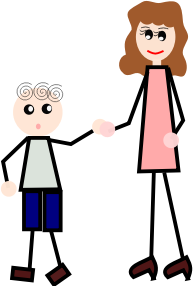
Why are mental health and disabilities fields that sociologists seem to neglect?
Historically, medical sociologists studied mental health and institutions. But there are few sources in the recent sociological literature on women and mental health. Feminist psychologists have done most of the research on these topics. With our intersectional frameworks, concern for social justice, and examination of structural oppression and intertwined institutions and identities, it is crucial for feminist sociologists to study gender and mental health (and disabilities).
We need to examine how women living with mental illness, and those with mental illness or disabilities in general, are labeled, viewed, and reacted to in a society that devalues emotions, lacks equity in access to quality mental health care, and criminalizes those with mental illness instead of supporting them. Even more necessary is perspective and insight on mothers who are living with mental illness, especially to give voice to women who may be afraid to speak about their experiences because of stigma.
David Karp is one of the few sociologists who has published on the experience of mental illness. In his book, Speaking of Sadness: Depression, Disconnection, and the Meanings of Illness, he states:
“Given the pervasiveness of depression, it is not surprising that both medical and social scientists have tried to understand its causes and suggest ways of dealing with…… As valuable as these studies might be, something crucial is missing. My view is that to really understand a human experience, it must be appreciated from the subjective view of the person undergoing it. …Underneath the rates, correlations, and presumed causes of behavior are real human beings who are trying to make sense of their lives” (p.11).
As sociologists we need to move away from the debate on ‘what causes mental illness’ and make room for understanding the experience of those living with it, especially for women and mothers. As David Karp notes in his work, the etiology of mental illness is complex. Sociologists can add to this research on causes, but we cannot pretend we have the grand answer. Our focus seems to be on critiques of the pharmaceutical industry and how diagnosis can be a form of social control. These are important issues, but by focusing on critiques, we neglect the stories of those who experience mental illness.
Does this mean that we are saying mental illness is not real? From the stories of women living with mental illness, we can still understand the structural forces that shape the experience, without denying that experience, and hopefully decreasing the stigma surrounding it.
To support this idea, and as an introduction to my new research on maternal mental health, I share stories, in this post, and the work of those who are using stories to dismantle the stigma that women and mothers living with mental illness experience. 
Motherhood and Mental Illness-Master Status
The blog post “Mothers and Mental Illness” written by Karen Spears Zucharias, author of Mother of Rain, tells the story of her friend who suffered from postpartum psychosis. (While this is something that can happen, it is rare. However, we may hear more about it because of the tragic events associated with it such as the death of a child.) Karen speaks volumes about mental health in this country including how we treat people with mental illness and how they may feel. These relate to sociological concepts of statuses, identity, labeling, and stigma. Karen states:
“People look at you differently when you’ve suffered from mental illness. Even when you’ve healed, there remains the nagging “what ifs” in the minds of others.”
Mental illness becomes your “master status.” With this being the case, do you ever get to have an emotion or make a mistake without your actions labeled as part of the mental illness, without the stigma? And more so, what are the consequences of this stigma, those negative sanctions that might include ending up handcuffed because of your mental illness?
A Mother in Handcuffs 
Dyane Harwood, a mother of two who lives with the mental illness bi-polar, writes about a horrendous experience in her blog post “Handcuffed and Lactating.” When her husband called 911 when she was in a manic-episode, symptomatic of her bi-polar disorder, four police offers showed up at her house to transport her to the Behavioral Health Unit. Although she was being compliant, they handcuffed her.
In her words, from the poem that begins her post:
“To this day, I can’t believe it
Why a lactating mother of two would be such a threat
I needed treatment, but I complied; I was willing to leave
My children for the hospital, near the street where I conceived
I didn’t need handcuffs – I had to laugh a bit
I wasn’t armed with a gun…what a bunch of bullshit!
I hope no other mother who’s manic and admits it
Doesn’t go through the humiliation of being treated like a convict.”
Is it any wonder why mothers, especially those living with mental illness, are afraid to ask for help? Mental illness is not a crime, nor is being a mother with a mental illness. And handcuffs do not heal. These stories are real, but we do not hear them. We do not have a space for women and mothers to share them, save for a few blogs and websites.
Stories To Tell 
The website Stigmama, founded by Walker Karraa, PhD, focuses on the perspectives of mothers and women living with mental illness, along with those who live with them. She argues that these personal perspectives make a difference and advocates that we use the term mental ‘difference’ instead of mental ‘illness.’ Dr. Karraa express this in a powerful way in the introduction to the website:
“I have always believed in the power of women, especially those who have been touched by mental illness or mental difference, to create change. We are different. We see what others don’t, write what others won’t, and give beauty to the deepest experiences of motherhood and the human soul. I created Stigmama for mothers of all ages to do just that. To speak their truths in a non-judgmental, supportive, creative community. We need the wisdom and support of others to unpack stigma of mental difference in motherhood.”
This relates to another quote from Karp, speaking to the importance of giving voice to those who rarely get to have a voice.
“The essential problem with nearly all studies of depression is that we hear the voices of a battalion of mental health experts (doctors, nurses, social works, sociologists, psychologists, therapists) and never the voices of depressed people themselves. We do not hear what depression feels like, what it means to receive an “official” diagnosis, or what depressed individuals think of therapeutic experiences. Nor do we learn the meanings that patients attach to taking psychotropic medications, whether they accept illness metaphors assessing their condition, how they establish coping mechanisms, how they understand depression to affect their intimate relationships, or how depression influences their occupational strategies and career aspirations” (pp. 11-12).
We need safe spaces for women living with mental illness to tell their stories and safe spaces, such as Feminist Reflections, to discuss the need for this research.
Moving Forward: A Call For Feminist Sociologists To Examine Mental Health
Like our fore-mothers in sociology, many of us as contributors and readers of Feminist Reflections want to make positive social change and give voice to those who are oppressed. While there is fabulous work done by sociologists on issues of race, gender, poverty, LGBTQ issues, and related identities and inequalities, we seem to forget about the hidden stigma and oppression of mental illness. Maybe we see it is as the psychologists’ domain as it deals with the mind. Or, we quickly turn to our critiques of medication and the pharmaceutical industry or diagnosis as a tool of social control. Maybe it is just too personal for some to study.
Whatever the reasons, I am pushing for feminist sociologists to study mental illness, especially women and mothers who suffer from mental illness. It is real for those who experience it— what we call the social construction of reality. Through women’s stories, we can deepen our understandings about the relationships among gender, motherhood, and mental health. And hopefully, we can help to decrease the stigma.
Read More:
- Stigmama
- Postpartum Support International
- David Karp- Speaking of Sadness: Depression, Disconnection, and the Meanings of Illness
- Walker Karraa-Transformed by Postpartum Depression: Women’s Stories of Trauma and Growth
- Verta Taylor-Rock-a-by Baby: Feminism, Self-Help and Postpartum Depression
